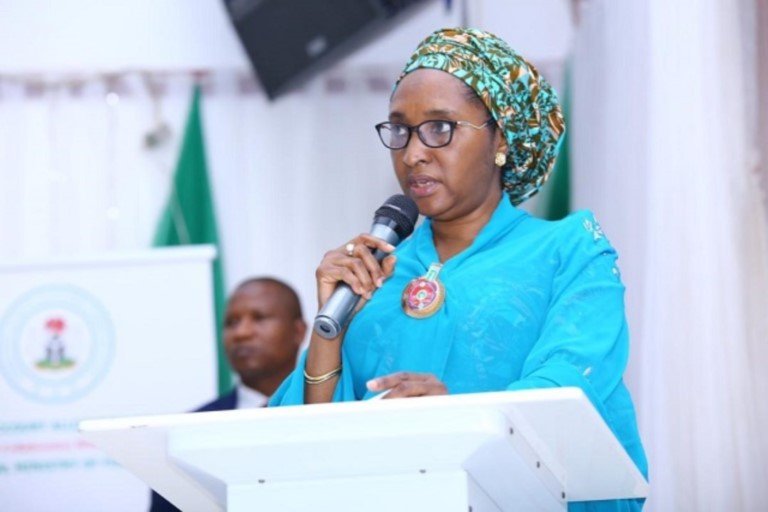The Minister of Finance, Budget and National Planning, Mrs. Zainab Ahmed yesterday disclosed that the Nigerian government was in talks with the International Monetary Fund (IMF) and the World Bank to restructure the country’s debts.
The minister also revealed that the country was considering tapping from the IMF’s newly created Food Shock Window, that allows member-countries to access emergency financing instruments.
The new window would be available for a year to provide additional access to emergency financing for countries facing urgent balance-of-payment need related to the global food crisis.
Speaking on the sidelines of the ongoing IMF/ World Bank annual meetings in Washington D.C, Ahmed said: “It is a fact that Nigeria’s debt has increased over the last three to four years and this increase in debt was occasioned by the different kind of exogenous shocks that the country faced which is not unique to Nigeria.
“The situation we have by our 2023 projection is that we will be needing to use about 65 per cent of our revenue to service debt. Unfortunately, the cost of debt service is rising because of the rising interest rate globally which is resulting also in higher debt service costs.
“But our projection from the debt sustainability analysis is that Nigeria is able to cope with its debt service in 2022 as well as in 2023. We have been engaging financial institutions to look at the opportunity to restructure our debt to further stretch the debt service period to give us more fiscal relief. Those are some of the things we want to achieve in this meeting.”
The IMF said increasing revenue mobilisation and leveraging high crude oil price to increase state capacity remained top priorities for reducing government borrowing and public debt in Nigeria.
Divisional Chief, Fiscal Affairs Department IMF, Paulo Medas, made this recommendation yesterday in Washington on the sidelines of the ongoing annual meetings of the World Bank and IMF.
He spoke at the press briefing on the IMF Fiscal Monitor report released at the annual meetings, which recommended tight fiscal policy in support of monetary policy efforts to tighten money supply to curb inflation.
Governments are facing a very difficult environment where in many countries they have double digit inflation and in this aspect, fiscal policy needs to help monetary policy working together to ensure price stability.
“This is absolutely critical for stable growth and for some public finances in the countries,” he said. Paulo Medas stressed that this is also applicable to Nigeria, adding that instead of pursuing an expansionary fiscal through additional borrowing which worsens the fiscal deficit and debt levels, the Federal Government should prioritise domestic revenue mobilisation via tax revenue as well as leverage on higher crude oil prices to reduce debt and increase its capacity to provide critical needs.“
Medas said: “Countries like Nigeria especially that are oil exporters can take advantage of rising commodity revenues to address some of these needs and to reduce debt.
“Nigeria has benefited from higher oil revenues. We haven’t seen an improvement in the deficits as we hoped, partly because of the large energy subsidies, but also other issues with the production of oil and other pressures on the budget. “
“So, our recommendation is to try to save some of these oil revenues but also address these emergency needs. Another aspect I would say is that Nigeria is one case where tax revenues are really low and this really undermines the capacity of the government to mark these types of shocks and to provide key services.”
Also speaking Vitor Gaspar, Director, Fiscal Affairs Department, IMF, stressed that in addition to the above Nigeria and other African countries must urgently direct resources to address the problem of food insecurity, improve social safety nets while also improve quality of government spending by reducing waste.











